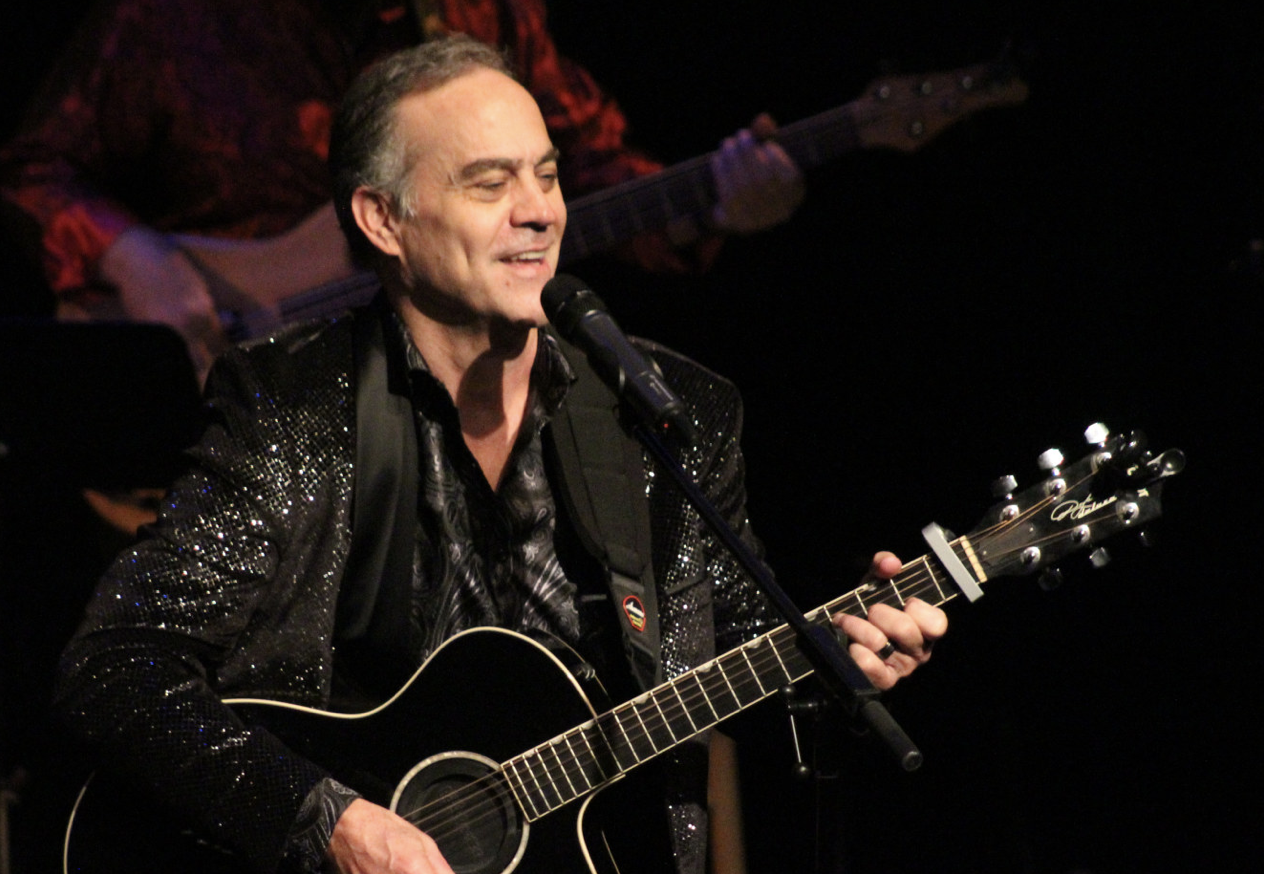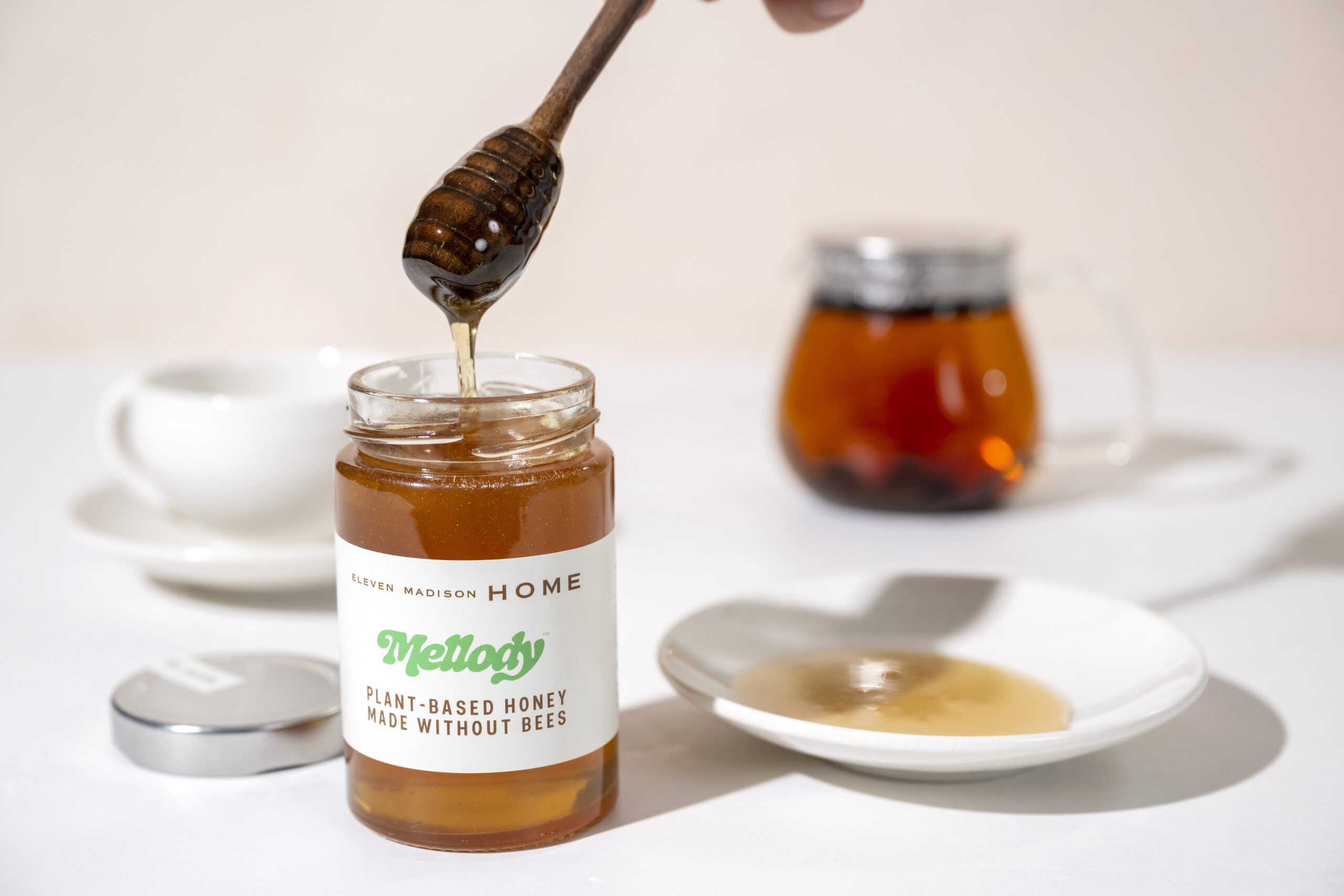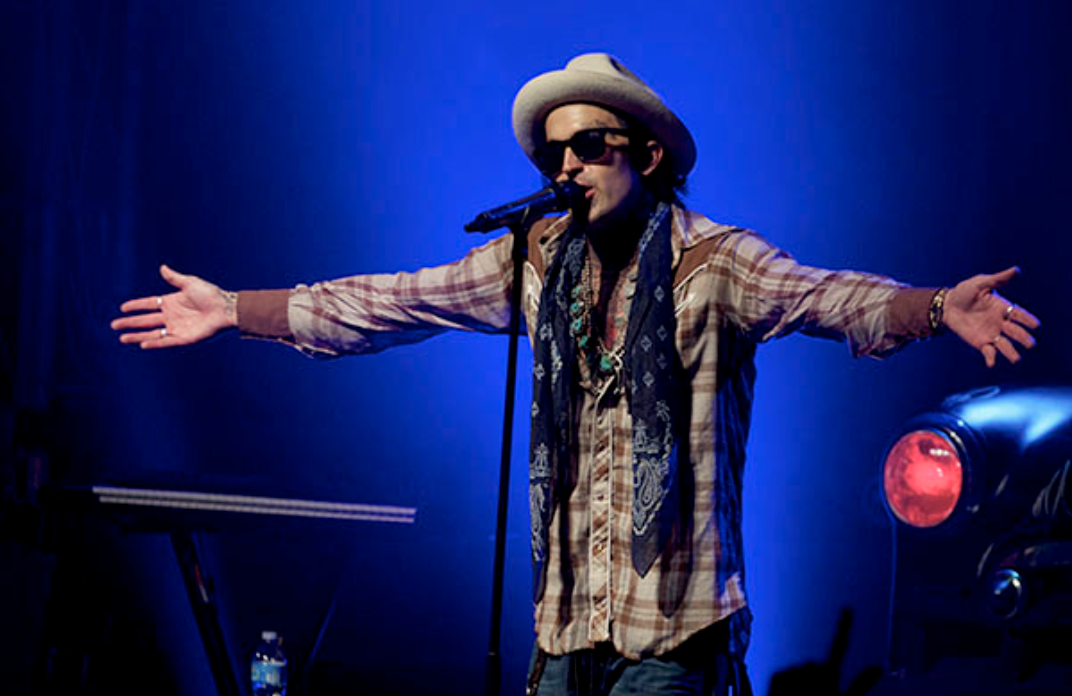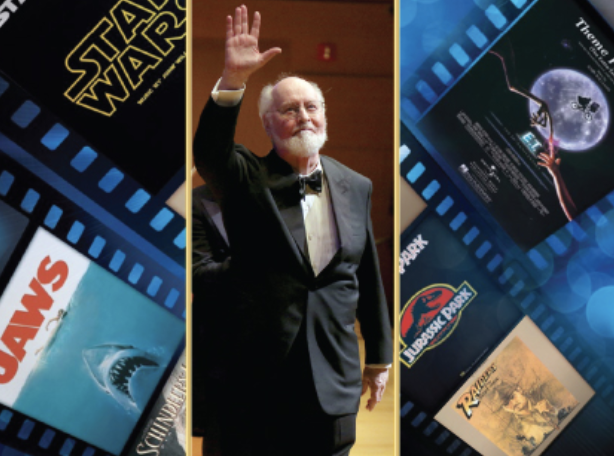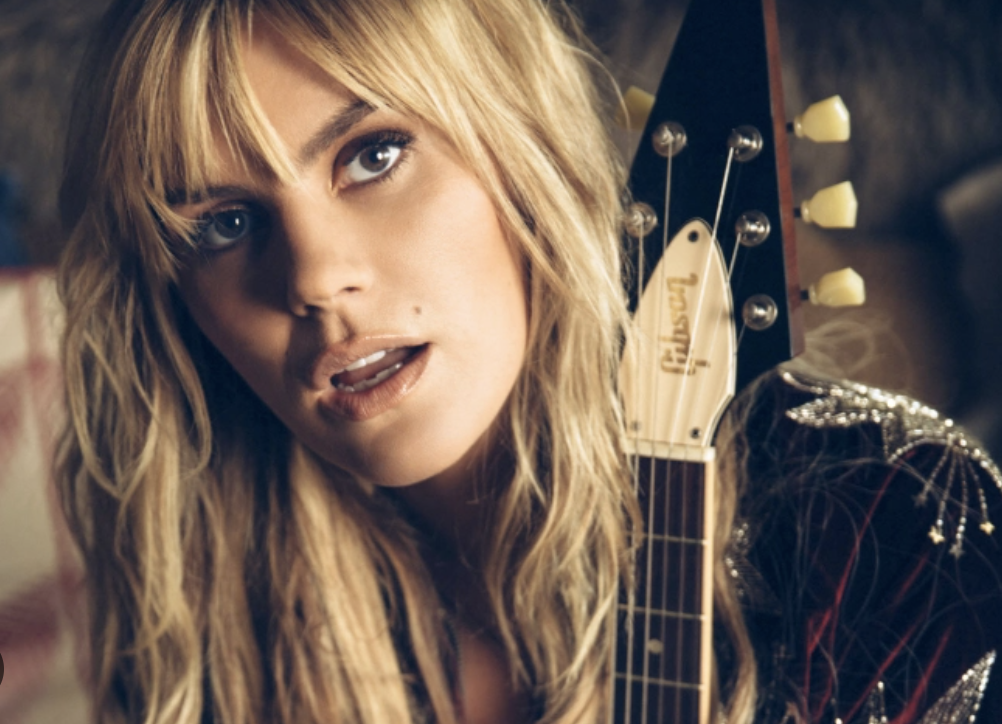Tom Segura’s ‘I’m Coming Everywhere’ Tour Comes to Wind Creek on Aug 26
Tom Segura is coming to Bethlehem!
The stand-up comedian will be performing at Wind Creek Event Center on August 26.
Segura is known for his comedy specials “Tom Segura: Mostly Stories” and “Tom Segura: Completely Normal,” both of which are available on Netflix. He’s also the host of the podcast “Your Mom’s House” with his wife, Christina Pazsitzky.
Related:
Post Malone announces Twelve Carat Tour 33-city including Philly’s Wells Fargo Center with special guest Roddy Ricch.
Don’t miss your chance to see Tom Segura live in Bethlehem!
Get your tickets today.
YOU MIGHT ALSO LIKE
Bob Dylan’s Bourbon Feud: Heaven’s Door Kentucky vs Tennessee
Bob Dylan’s Bourbon Feud: Heaven’s Door Kentucky vs Tennessee
Heaven’s Door Spirits, Bob Dylan’s highly awarded collection of super-premium American whiskeys, is turning up the heat on the age-old debate of which state, Tennessee or Kentucky, makes the best bourbon.
For as long as corn’s been cracked and stills have bubbled, Kentucky and Tennessee have been turning pristine limestone water and grains into a coveted amber elixir.
Heaven’s Door’s Great State Bourbon Debate rekindles the friendly feud
Heaven’s Door’s Great State Bourbon Debate rekindles the friendly feud between these two bourbon powerhouses, inviting whiskey lovers everywhere to put their palates to the test and voice their opinion.
Heaven’s Door sets itself apart as the first brand to offer both a Kentucky and Tennessee bourbon, giving fans a unique chance to compare.
The brand’s Kentucky Straight Bourbon, Ascension, and Tennessee Straight Bourbon, Revival, are made from high rye mash bills with grains largely sourced local to the distillery, and barreled at the same proof, yet yield vastly different taste profiles. Heaven’s Door invites you to level set, savor and decide which bourbon pleases your palate and wins your heart.
A Tale of Two Bourbons
Many folks mistakenly believe that bourbon can only be made in Kentucky, but the truth is, bourbon can be crafted anywhere in the U.S.
What makes an American whiskey a true bourbon is a special set of rules: it has to be made with at least 51% corn, distilled at a certain proof, and aged in new oak barrels.
Kentucky and Tennessee both have storied histories of producing excellent bourbon, with differences in water and climate producing distinct flavors.
Kentucky’s limestone water and Tennessee’s pure spring water are both famous for helping yeast thrive during fermentation.v
Differences in flavor profile come from the type and provenance of the grains used, the type of yeast used, water quality, the proof at distillation and the particular wood used to make oak barrel.
Even the location of the barrel warehouse, the circulation of air between the barrels being stored and where the barrels are within the warehouse (high up or near the bottom) all conspire to give impart flavor differences.
Heaven’s Door Kentucky Straight Bourbon, Ascension
Heaven’s Door Kentucky Straight Bourbon, Ascension, is a unique blend of two premium Kentucky straight bourbons aged for over five years and non-chill filtered, boasts warm and slightly sweeter notes of vanilla and baking spices. The limestone-filtered water of Kentucky, renowned for its purity, plays a key role in developing these rich flavors.
Heaven’s Door Tennessee Straight Bourbon, Revival
Heaven’s Door Tennessee Straight Bourbon, Revival, also aged for over five years and non-chill filtered, offers a drier profile with complex and sharp flavors. Unlike many Tennessee bourbons, Revival skips the “Lincoln County Process” – a charcoal filtering step – allowing the natural flavors of the local non-GMO grains to shine through, resulting in a lingering finish with hints of caramel, cinnamon, and nutmeg.
“We wanted to fan the flames of this old debate
between Kentucky and Tennessee bourbon
and showcase
our outstanding expressions of both styles.
We’re excited to hear what consumers think and how they experience these two classic bourbons.”
Alex Moore
Master Blender and COO
Heaven’s Door Spirit
Heaven’s Door marries art and craft in every bottle, drawing inspiration from Bob Dylan’s restless spirit to continually innovate. By sourcing non-GMO grains and honoring each state’s natural elements, the distinct character of each bourbon is evident in every sip.
Lehigh Valley, are you Following your Heart and Need Media Attention? Reach to Publicity For Good, CEO Heather Holmes explains
Lehigh Valley, are you Following your Heart and Need Media Attention? Reach to Publicity For Good, CEO Heather Holmes explains
Publicity for Good is a millennial run communications firm that provides high-level disruptive, publicity and social media services for wide array of purpose driven clients in the food, beverage and beauty industry.
In 2016 by Heather Holmes former miss Ohio international celebrated publicist and Forbes 30 under 30 nominee publicity for good has built a reputation as the countries number one PR agency for CPG brands that have social causes built into their DNA.

Publicity For Food CEO Heather Holmes
Today’s conversation with Heather Homes from PublicityForGood.com has been edited for length and clarity. For the full, un-edited conversation, visit our YouTube channel here.
Joe Winger:
Heather Holmes from PublicityForGood.com. I’m a big fan because you’ve helped us facilitate a lot of previous conversations about food and drink and nutrition and all the things we like talking about.
What’s the most important thing that you want to share with the audience today?
Heather Holmes:
I really want to take away the unknown or worry about getting in the media. I want to make it more accessible to amazing brands and people.
So I definitely want to share tactical advice that if someone is reading this, they have a good story in business, they have the confidence that their story is good enough and they could absolutely make an impact and grow their business by getting in the media.
Joe Winger:
Starting with the basics, let’s pretend I have a company, I think I want public attention. I want to reach out to someone like you.
So what should I be thinking about? What do I present to you as a step one?
Heather Holmes:
Step one is really the intentionality of why you want to get in the media. What’s your goal? Are you wanting to reach more people? Are you wanting to get your story out there?
Are you wanting more sales and more people to buy your product?
You really need to know. Where you’re going first, and if you don’t know where you’re going, or you don’t have a vision, then it’s really hard to help you.
But if you have clarity there, then we can really pull back and help you identify your story, how you’re different, your why, and why your product and or company, would be really great to be in the media.

The PublicityForGood Team
Joe Winger:
Now, looking at the grand scheme of the campaign, what kind of a campaign should we be looking for: expectations, results?
Heather Holmes:
After we know our outcome that we’re wanting to get more sales, more backlinks, or name in the media, then what I like to do first is work with every entrepreneur, and even if you have a product, to really reflect in “why your story matters”
Why does your product matter?
If you’ve never been in the media before, I take people for an exercise where I have them draw on a piece of paper, them as a baby, to where they are now.
I have them write the key pivotal moments that have happened in their life that have made them start that company, because those little components are absolutely a part of your story.
I’ve been in the media 700 plus times: Inside Edition, Fox News, The New York Coast, incredible media, but it hasn’t always been about being a publicist, right?
Yes. I’m the founder of Publicity For Good, but a lot of that has been my story or building a seven figure company from an airstream.
Now I have almost two under two with a third on the way.
So you need to have your key pivotal moments because those are things you can talk about in the media.
Then we need to look at what’s going on in the news and how we bridge the gap between your product. Relevancy.

Joe Winger:
People may not know you are a former Miss Ohio International. Can you tell us a lesson you learned from being a former Miss Ohio International that you’re using in today’s work?
Heather Holmes:
It’s really all about your platform and reaching new audiences.
When I was building my company I decided I wanted to get into pageants. I wanted to meet a community of like minded people that wanted to make a difference in the world.
It was a way for me to have a platform because at the time I was talking about why you absolutely can build a profitable business. But also make a difference in your community and make a difference amongst your team. And really just build an incredible legacy.
So that was why I did the pageants.
I did a bunch of publicity and again, it made me relevant and timely because that was what got me in the media because I was Miss Ohio and I was only Miss Ohio International for a period of time.
So it gave me that relevancy. So you have to be relevant.
You have to bridge the gap between what’s happening in the news, or we often use Awareness Days, National Nutrition Month, National Social Media Day, and you have to position your product or yourself as the solution.
[For example], we were talking about an incredible juice brand, but most pitches I see are very promotional, right? It needs to be how you or your product simplifies people’s lives. How are you adding value? Or you don’t have a product you need to inspire people.

Joe Winger:
You’re growing a 7- figure business. What’s it like growing a huge business while you’re taking care of your kids and for a while you were living out of your Airstream
Heather Holmes:
We lived out of a 23 foot airstream for 3 1/2 years. I went from dating to engaged, to married to [my first child] Rose, who’s almost two, who lived in our airstream with us.
The year the pandemic [hit] was our first million dollar year.
I think a lot of the reason why it was that year is because when March hit, everyone was so scared that we lost about 40% of our business, number one.
Number two, we had to hustle and grit to make it. There was no choice of failing. All the distractions were gone.
When you’re in an Airstream, all you have is your laptop, but we had no external distractions, and then everything else was closed.
So the only focus we could do was our business and we had to scale out of necessity because we didn’t want to lose what we had put so much time in.
Fast forward, we now have 22 acres where we live and we have two under two, we have one on the way, we’re a full time team of 40, and it’s not easy.
I say transparently, it’s a hot mess. There are so many miracles that happen every day, but life is one, right? I can’t turn off my founder hat and publicist hat and then “Oh, I’m a mom”. It’s all one.
So yes, I might have Rose [my daughter] on a call with me from time to time, but I’ve learned that the more you step in and embrace your life, who you are and the realness, sometimes people opt out and that’s okay.
And this is my legacy.
I like these missions that we’re doing good work to us is way more than a business. We want to grow your brand and mission and we take it so seriously.
So it’s not perfect. It’s not perfectly scheduled. I’m a full time mom, all the time on the weekends when the kids are sleeping, we’re working.
We know where we want to go, and these clients and ambitions that we’re aligned with and supporting are helping people with their health.
Joe Winger:
What an incredible story to share.
Heather Holmes: I have so much to share. Like I was adopted when I was a week old to having two under two and another one on the way and building a business and building a homestead.
It’s so crazy. Austin, who’s my husband, the first week we were dating, we’re all about intentionality. I have the journal and we mapped everything out.
This year, we were going to get engaged then married. Austin and I,l we will have been together almost five years.
We’ve had a kid every year. Rose will be two in June.
We want to build a business. We want to impact our clients, brands, and scale their business. We want our team to get better and flourish in their personal lives too.
This is our mission and I’ve seen so many miracles happen from getting in the media on a personal level.
I was talking to [a business owner client] and her business grew by 40% from getting in the media.
One of my favorite cookie brands, a mom had an incredible heart story. She went on our local news and she brought in $12,000 worth of sales, just the local people wanting to support her.
On the flip side, when people Google my name, it’s like my social currency, there’s all these articles. So I have so much peace in that. Our kids will see the good work we’re doing.
Joe Winger:
You’re talking to an audience of foodies. What is your favorite meal?
Heather Holmes:
We just had Indian food last night that my husband made and it was so good.
We used to live in San Diego and I think San Diego has the best food. It’s all fresh. We’ve traveled a lot. We’ve been to Bali, their food is pretty incredible too. Where we live [now] we’re right outside of Asheville and Charlotte. So they have some good restaurants, but like I’m not in the phase right now where I’m the foodie like I used to be.
[At our house] we have chickens and we have fresh eggs. So I’m obsessed with fresh eggs every morning. You’re living a good life when you can go get your eggs and have them at home with some goat cheese.
And honestly, I love Livermuth. Crazy. So I’d say some Livermuth fried in a cast iron with some eggs and goat cheese. It’s the simple things that I really do love.
Joe Winger:
Heather Holmes with Publicity for Good. As we wrap up, whether it’s a potential client, a potential vendor, someone wanting your help with publicity, what are the best ways to find, follow you, websites, social media, etc?
Heather Holmes:
You can go to PublicityForGood.com You can find me on social media as well.
https://www.linkedin.com/in/heatherdesantis
https://www.instagram.com/heatherdesantis
https://www.instagram.com/publicity.for.good
https://www.facebook.com/heatherdesantis
Lehigh Valley is in the “FORVR Mood” with Jackie Aina for Limited-Edition Crown Royal Blackberry Flavored Whisky
Lehigh Valley is in the “FORVR Mood” with Jackie Aina for Limited-Edition Crown Royal Blackberry Flavored Whisky
Crown Royal and FORVR Mood Co-Founder, Jackie Aina, Partner to Release Limited-Edition Candle Inspired by Popular New Flavor Crown Royal Blackberry Flavored Whisky
Jackie Aina, from FORVR Mood, Partners with Crown Royal Blackberry Flavored Whisky
With bottles flying off the shelves nationwide, Crown Royal Blackberry Flavored Whisky has proven to be one of the brand’s most popular flavor offerings.
This is an innovative whisky blend deserving of a partner just as creative to kick off the summer. Jackie Aina, a well-respected creator and entrepreneur, whose brand, FORVR Mood, garnered a wait list of over 45,000 customers prior to its launch in 2020, was a natural choice for the brand.
Aina’s love for the new flavor inspired her curation of the limited-edition Crown Royal Blackberry x FORVR Mood candle.
Appropriately titled, Berry On Top, this delicious scent is crafted with notes of blackberry, complemented with whisky accord and vanilla.
Limited quantities of the candle will be available online at Forvrmood.com *while supplies last
This exclusive new scent will be unveiled at the Crown Royal Blackberry Stand!
The Crown Royal Blackberry Stand is an adult twist on your traditional lemonade stand , where creativity meets cocktails and spotlights business owners, via the collaboration with Jackie Aina and FORVR Mood.
With the entrepreneurial spirit of a traditional lemonade stand at its core, the Crown Royal Blackberry Stand will provide a platform for rising founders via the brand’s partnership with 501(c)(3) organization, Black Girl Ventures Foundation.
Attendees that visit the stand are invited to sip signature cocktails and shop the exclusive Berry on Top candle as they learn more about Crown Royal charity partner Black Girl Ventures Foundation.
Black Girl Ventures Foundation is an IRS § 501(c)(3) organization dedicated to providing underrepresented founders with access to community, capital, and capacity building to meet business milestones that lead to economic advancement through entrepreneurship.
Crown Royal’s partnership with FORVR Mood and Jackie Aina is rooted in the support of Black Girl Ventures Foundation.
To further their efforts, Crown Royal will be donating $50,000 to Black Girl Ventures Foundation from the Crown Royal Generosity Fund*, where half of the donation will support the BGV Pitch Program.
More information on the organization’s mission, programming, and ways to support the Black Girl Ventures community will be found at The Crown Royal Blackberry Stand.
“Our new Blackberry Flavored Whisky is one of our most flavorful yet!”
Hadley Schafer
VP of Crown Royal
“…It was important that we found the perfect partner to not only celebrate this exciting new release but also one whose passion for creativity and entrepreneurship aligned with our vision for The Crown Royal Blackberry Stand,” said Hadley Schafer, VP of Crown Royal. “This collaboration with Jackie Aina and FORVR Mood not only highlights this flavor profile in such a fun and unexpected way but also makes a meaningful impact by supporting the next generation of 21+ business owners.”
For more information about The Crown Royal Blackberry Stand featuring Crown Blackberry x FORVR Mood By Jackie Aina in Los Angeles on June 14th and 15th, and more juicy Crown Royal news visit @crownroyal on Instagram to sign up for the Crown Royal newsletter.
“Finding new ways to flex my creativity to craft something that I know my supporters will love is exciting for me,”
Jackie Aina
“So, when I was approached by Crown Royal for this partnership it was a no-brainer for me, especially after seeing all the hype for their new Blackberry Flavored Whisky and learning they’re supporting a cause close to my heart with Black Girl Ventures. I’m excited to partner with a brand that shares my values!”
Crown Royal Blackberry Whisky has an ABV of 35% and is available nationwide for a limited time at a suggested retail price of $26.99 for a 750mL bottle.
*Crown Royal Generosity Fund is a donor-advised fund, administered by Fairfield County’s Community Foundation, a nonprofit entity organized under IRC §501c3.
You Might also like
-
Yelwolf Live at the Sherman Theater on September 26
Yelwolf Live at the Sherman Theater on September 26
American rapper, Yelawolf is coming to the Sherman Theater in Stroudsburg, PA on September 26 with support from Caskey and Cowboy Killer.Yelawolf, born Michael Wayne Atha in Gadsden, AL, made his major label debut with Eminem’s Shady Records (Interscope) in 2011 after building a rabid fanbase that caught the attention of critics and label execs alike. The rapper, songwriter, performer and entrepreneur has released new music relentlessly and travelled around the world performing sold out shows across the United States, Canada, Europe, Australia, and New Zealand.Yelawolf’s first five full-length albums and various side projects have featured collaborations with a wide variety of top artists including Eminem, Ed Sheeran, Travis Barker, Flea of the Red Hot Chili Peppers, Gucci Mane, Kendrick Lamar, Diplo, A$AP Rocky, 3.6 Mafia, Big Boi, Wynonna Judd, among others.With his faithful and ever-expanding following, Yelawolf has cultivated a global community with his lifestyle brand Slumerican. His sixth studio album Ghetto Cowboy was released via his own imprint, Slumerican Records and has included extensive touring in both the US and internationally in its support.Yelawolf released 4 projects in April, 2021 leading up to his full-length studio album titled “MudMouth” on April 30th, 2021, followed by a rock n roll album titled “Sometimes Y” which was released March 11th, 2022. Yelawolf is set to release a double album titled War Story in March 2024.Tickets available at shermantheater.com or at the Sherman Theater Box Office at 570-420-2808.Show: Yelawolf with Caskey and Cowboy KillerDate: September 26, 2023Time: Door at 7:00 PM; Show at 7:30 PMThe Sherman Theater is Monroe County’s only nationally ranked, non-profit theater and performing arts center. Located in downtown Stroudsburg, PA, the Sherman Theater has proudly served the Pocono region for 90 years.The Theater and Performing Arts Center is committed to strengthening the community by producing culturally-diverse, nationally-known professional acts and festivals at the theater and at satellite locations throughout Monroe County for people of all ages, by providing an opportunity for local artists to perform, and by creating economic development in the region. The Sherman Theater projects and events attract over 100,000 visitors to the Pocono Region annually.For more information call 570-420-2808 or visit www.shermantheater.com.Post Views: 1,468 -
The Music of John Williams at Allentown Symphony Hall Sat May 6
The Music of John Williams at Allentown Symphony Hall Sat May 6
The music of John Williams is known for some of the most famous and popular movies in our history: Indiana Jones, ET. Jaws, Star Wars.
His music has transported us beyond our imagination. To new worlds. Through heart-pounding adventures. Be there when the Allentown Symphony performs all your John Williams favorites – Star Wars and more!
Tickets and information for The Music of John Williams here.

The Music of John Williams at Allentown Symphony Hall Sat May 6
John Williams is an American composer, conductor, and pianist. In a career that has spanned seven decades, he has composed some of the most popular, recognizable and critically acclaimed film scores in cinematic history. Williams has won 25 Grammy Awards, five Academy Awards, seven British Academy Film Awards, and four Golden Globe Awards. With 53 Academy Award nominations, he is the second most-nominated individual, after Walt Disney. His compositions are considered the epitome of film music, and he is considered among the greatest composers in the history of cinema-as well as all time.
Diane Wittry, conductor
Tickets and information for The Music of John Williams here.
Post Views: 230 -
Grace Potter at Penn’s Peak Sunday September 24
Penn’s Peak is proud to announce Grace Potter, Sunday, September 24, 2023 at 7:30pm.
Back in summer 2021, Grace Potter took off on a solo cross-country road trip that would soon bring a life-saving reconnection with her most unbridled self.
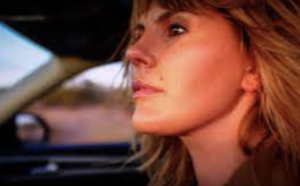
Heading out on Route 66 from her home in Topanga Canyon, the Vermont-born artist spent the coming weeks crashing in roadside motels and taking time each night to deliriously transcribe the song ideas she’d dreamed up behind the wheel, often scrawling those notes onto the backs of postcards and motel notepads.
After completing two more trips across the U.S. on her own—and partly navigating her way with the help of hand-drawn maps from self-styled historians of Route 66—Potter flew to Nashville for a series of recording sessions that quickly gave way to her most magnificently unfettered collection of songs to date.
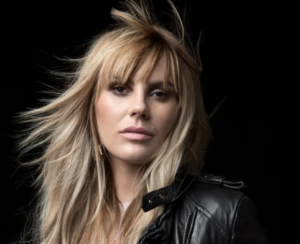
Equal parts fearlessly raw memoir and carnivalesque fable, the result is a body of work that goes far beyond the typical album experience to deliver something much more all-enveloping: the original motion picture soundtrack to a profoundly transformative moment in Potter’s life, a fantastically twisted odyssey populated by the hitchhikers and outlaws and other lifelong wanderers who roam through the wonderland of her psyche.
The follow-up to Daylight—a 2019 release that earned GRAMMY nominations for Best Rock Album, and Best Rock Performance—Mother Road marks the start of a thrilling new era of a career that’s included turning out seven acclaimed albums, sharing the stage with the likes of The Rolling Stones, Robert Plant, and the Allman Brothers Band, and playing nearly every major music festival (in addition to launching her own festival, Burlington’s Grand Point North).
Over the course of its 10 larger-than-life tracks, the album fuses elements of soul, blues, country, and timeless rock-and-roll with masterful abandon, thanks to the vibrant musicianship of Potter and her collaborators:
legendary keyboardist Benmont Tench, keyboardist Benmont Tench (Cage The Elephant), bassist Tim Deaux (The Whigs, Kings Of Leon), pedal-steel guitarist Dan Kalisher (Fitz And The Tantrums, Noah Cyrus), Potter’s longtime drummer Matt Musty, and her husband Eric Valentine (a multi-instrumentalist who plays everything from African lute to synth bass on Mother Road).
Produced by Valentine (who’s also worked with Queens of the Stone Age, Slash, and Weezer) and recorded at RCA’s famed Studio A, Mother Road fully echoes the ecstatic catharsis of its recording sessions, a process that Potter alternately likens to a tantrum and a haunting.
“I didn’t have any real intention of making a record; I just thought I’d get into a room with some friends and mess around with these unfinished ideas I’d been gathering,”
she says.
“But then an entire album fell out of me, including all the lyrics—the blanks had been filled in, like my subconscious had created finished sentences spoken distinctly from the perspective of all these characters that were living inside me.”
As she reveals, that explosion of creative energy followed a period of emotional crisis for Potter, a turn of events partly triggered by moving back to her hometown with her husband and young son a year into the pandemic. “There was a big piece of my heart that wasn’t ready to go back to Vermont—it all happened about 10 years earlier than I’d expected,” she says. “California had always felt like a new beginning, a place where I was able to step into a community of like-minded weirdos, and through that first winter I started to feel trapped.”
After suffering a miscarriage (a particularly brutal medical experience compounded by the fact that she’d unknowingly been carrying twins), Potter began treatment for clinical depression and soon decided to seek the solace and release she’d always found on the road. “I used the rental-car shortage as an excuse to go get our car in Topanga, but the truth is I was going to probably have a full mental breakdown if I didn’t step away from the pressure cooker of judgment, I’d placed on myself and my environment,” she says.
“At first, I thought of what I was doing as escapism, and I felt ashamed of that.
But eventually I realized I was giving myself permission to do what needed to be done for me to get better.”
Within days of that first road trip, Potter was overcome by memories of past adventures and began piecing together stories set in parallel realities and alternate timelines, each rooted in the unvarnished truth of her emotional experience. “Mother Road is a reframing of my understanding of my history,” she says. “It’s an important and powerful perspective I’d never had until this record, and the heart of it is my journey to self-reliance and a sense of worthiness.”
Named for a line from The Grapes of Wrath—in which John Steinbeck refers to Route 66 the “the mother of all roads…the road of flight”—Mother Road opens on the soulful swagger of its sublimely rowdy title track.
“That song is my way of saying I’m not okay, and I’m hoping that the road will at least be my partner-in-crime on this journey, if not a healer,” says Potter, whose powerhouse voice lends the track a certain incandescent grit.
A world-weary plea for redemption (from the chorus: “Wherever I’m headed/Mama, don’t let it be down”), “Mother Road” also makes for a prime introduction to the album’s ingenious use of background vocals.
“All of those vocals are me, but each voice is a different character I was manifesting in the album,” Potter explains. Mother Road’s motley cast of characters includes the ghost of Waylon Jennings and an enigmatic road warrior named Lady Vagabond.
On “Good Time,” meanwhile, Potter inhabits the role of a hellraiser called Brigitte as she serves up a groove-heavy sizzle reel of her real life’s wildest moments (e.g., “I breastfed a stranger once at an In-N-Out Burger/Stripped down to my skivvies and danced across the boulevard”). “Writing that song, I was thinking about all the times when there were no boundaries between me and the world at large,” says Potter. “As you get older there’s this expectation that you need to fall in line, that you can’t keep living in a fantasy your whole life. But I don’t know about that. Maybe we can.”
At the heart of Mother Road lies two back-to-back tracks that together speak to the transcendent power of bending reality and creating our own myths. Co-written by Potter and the Highwomen’s Natalie Hemby (a Grammy-winning songwriter whose credits include tracks by Kacey Musgraves and Maren Morris), “Little Hitchhiker” brings Potter’s delicate piano melodies, luminous acoustic-guitar work, and gorgeously longing vocals to a tender reflection on her experience as a nine-year-old runaway.
Next, “Lady Vagabond” unfolds with spaghetti-western bravado as Potter immortalizes the lawless superhero within. “To me she represents complete self-reliance and strength, and the permission to be as mischievous or as benevolent as you want to be,” says Potter. “She may not have a great grasp on everything else in the world—she may not even have the greatest grasp on herself—but that’s okay.”
For the closing track on Mother Road, Potter offers up an epic piece of cabaret-pop touched with both theatrical flamboyance and devil-may-care attitude. A bit of coming-of-age autobiography in song form, the piano-led “Masterpiece” paints a picture of her libertine young adulthood in irreverent and dazzling detail (“I was the long-lost daughter of disco/Dancing thru my jock-strap dreams/In my funky little Fiat/Chasing down my Masterpiece”). “One of the silver linings of going back home was driving by my high school every day and having all those memories come rushing back,” says Potter. “The kids I’d grown up with were there with a million stories about me, and every story got weirder and wilder than the last. But I love that that’s how they remembered me, and I love that I’m still living those stories out through my songs.”
Even in Mother Road’s most outrageous moments, Potter infuses her songwriting with essential insight into the endless nuances of life and love and belonging. True to the cinematic nature of Mother Road’s storytelling, she’s also immersed herself in creating the album’s elaborate visual components, an undertaking that’s involved expanding her talents as a filmmaker and multimedia artist. “I know now that there’s more depth to my expression, and I feel ready to bring everything into focus under a much larger circus tent than I have in the past,” she notes. And after thousands of miles on the road, countless nights at seedy motels, and a heartrending return home, Potter has made her way to the kind of creative freedom that leaves both artist and audience indelibly altered—a freedom that’s undeniably led to her masterpiece.
Tickets on sale Friday, June 23rd at 10:00AM at all Ticketmaster outlets, the Penn’s Peak Box Office and Roadies Restaurant and Bar. Penn’s Peak Box Office and Roadies Restaurant ticket sales are walk-up only, no phone orders.
General Admission
Advance: $30
Day of Show: $35
About Penn’s Peak
Penn’s Peak, a beautiful mountaintop entertainment venue located in Jim Thorpe, Pennsylvania, can comfortably host 1,800 concertgoers. Enjoy a spacious dance floor, lofty ceilings, concert bar/concession area and a full service restaurant and bar aptly named Roadie’s. Complete with a broad open-air deck for summertime revelry, Penn’s Peak patrons enjoy a breathtaking overlook of nearby Beltzville Lake, plus a commanding, picturesque 50-mile panoramic view of northeastern Pennsylvania’s Appalachian Mountains. Choose Penn’s Peak for your next wedding, banquet or special event and treat your guests to an event truly “Above the Rest”.
Geographically convenient to residents of major population zones in Hazleton, Scranton, Wilkes-Barre, Stroudsburg, the Lehigh Valley, Philadelphia and New York City, Penn’s Peak is an ideal location for any event. It is located only four miles from Exit 74 of the northeast extension of the Pennsylvania Turnpike.
For more information on Penn’s Peak, go to www.pennspeak.com or call 866-605-7325.
Post Views: 307





